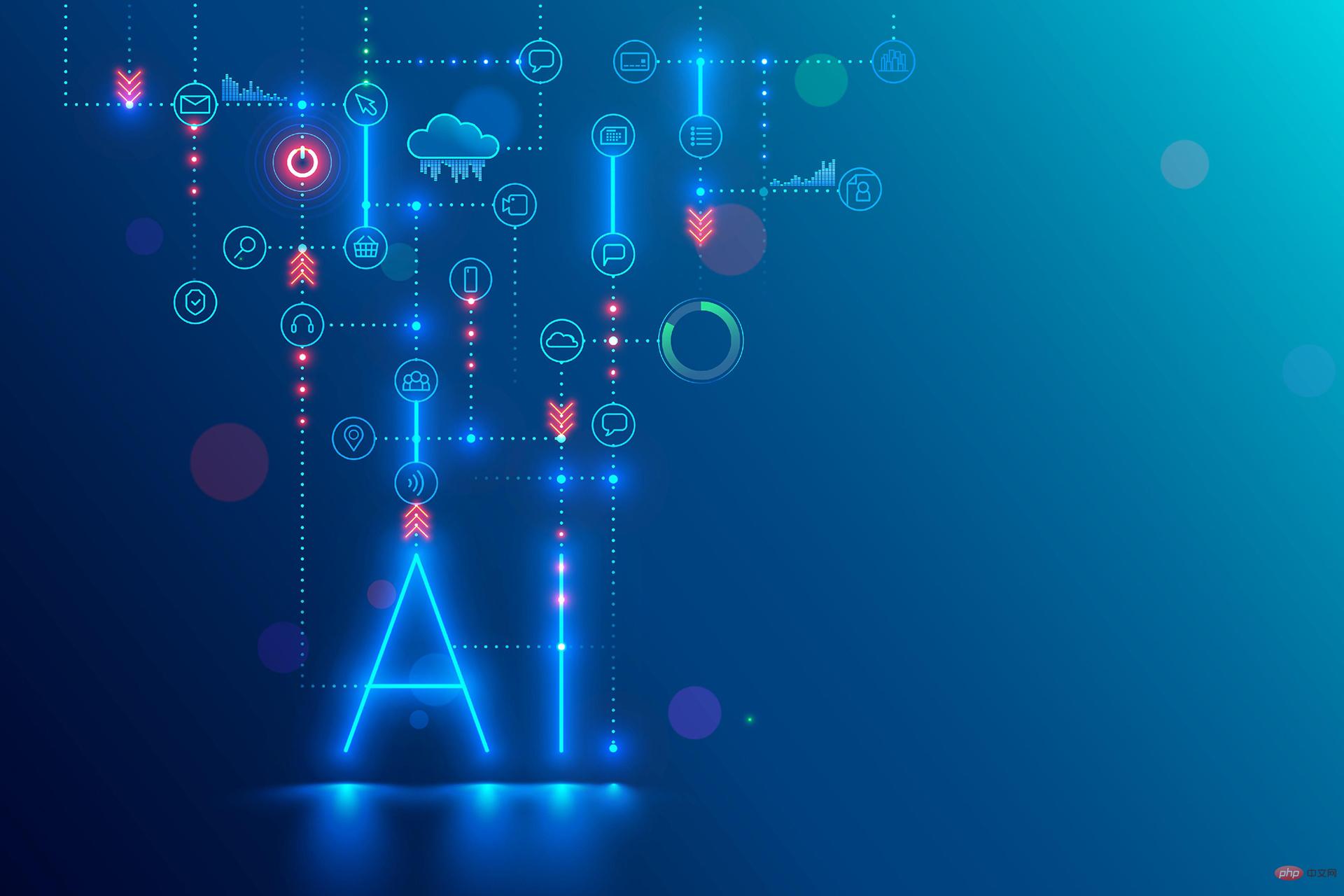Home >Technology peripherals >AI >What is the future of artificial intelligence?
What is the future of artificial intelligence?
- WBOYforward
- 2023-04-12 16:16:061753browse

The use of artificial intelligence can promote human beings to realize their potential. If used within ethical boundaries, it will contribute to a sustainable future for humanity.
Artificial intelligence is affecting the world in incredible ways. The technology features sophisticated machine learning algorithms that allow it to process large amounts of data. Artificial intelligence and sophisticated machine learning algorithms could enable humans to control climate change and make workplaces more efficient. Additionally, it will support the search for treatments for rare diseases and promote a sustainable future for humanity. The famous American inventor Ray Kurzweil believes that computers will achieve human-like intelligence in 2029. He added that humanity will reach the singularity in 2045. According to Bloomberg research, the artificial intelligence industry will reach financial growth of more than $422 billion. It forecasts a compound annual growth rate of 39% between 2022 and 2028.
How does artificial intelligence affect the human world?
The launch of AI-enabled products paves the way for exponential profits. It facilitates the production of smart applications. With this in mind, artificial intelligence is setting new standards for accuracy, efficiency, and reliability.
Creating Self-Driving Cars
The use of artificial intelligence in the automotive industry will support the creation of driverless transportation. The technology will use machine learning and deep learning to enhance the vehicle’s pattern recognition and prediction capabilities. According to a comprehensive assessment by University College London and the University of Munich, autonomous vehicles will be able to cover 70% of total mileage by 2035. In this way, fatal accidents will be greatly reduced and safe driving will become a top priority. specification.
Augmenting the power of medicine
The widespread use of artificial intelligence will enhance the problem-solving abilities of medical professionals. In medicine, doctors will be able to cure paralysis, cancer, and chronic anxiety. The combination of artificial intelligence and nanobots will enable experts to deliver gene therapies. It will allow drugs to be delivered through the bloodstream more efficiently than before. As a result, medical professionals will be able to leverage the power of technology to provide personalized care.
Improving Workplace Operations
Business goals are expected to shift by 2028 as artificial intelligence becomes more widely adopted. Organizations will need digital dexterity and intelligence to drive their business to new heights of success. Recruiters’ focus will be on employees who want to upskill and develop digital talent, rather than demonstrating previous work experience.
This change will occur because robots will take over repetitive tasks such as data collection, supervision and employee compliance with organizational policies. Therefore, the business world must prepare for a world where humans, AI and robots will work together to create a dynamic work dynamic.
The power of improving cybersecurity
Cybercriminals also leverage advanced digital solutions to achieve their malicious goals. According to Cybersecurity Ventures, the financial impact of crypto crime will exceed $30 billion. That's a huge increase compared to $17.5 billion in 2021. This is a shocking number for any industry looking to protect its sensitive data from hackers. In this case, the implementation of AI-powered verification systems will help businesses enhance their security protocols. Not only can they combat financial crime, they can also ensure compliance with AML/CFT regulations.
Decoding the Human Brain
Neuroscientists have always been fascinated by the mysteries of the brain. Even with all these scientific discoveries, there is still much to learn about the complex structure of the brain. Neuroscientists use AI and ML technologies to create flexible models that can understand populations of neurons. The main goal is to derive a working hypothesis from brain data. The scientists also hope to enhance the model's predictive power and learn more about neuronal activity (such as canonical features).
The implementation of artificial intelligence provides experts with the flexibility to discover new models from data samples and optimize their methods. For example, neuroscientists use fMRI machines (functional magnetic resonance imaging) during experiments to help them understand the brain through changes in blood flow. The machine regularly captures images of brain activity. The application of artificial intelligence and complex machine learning algorithms (AI&ML) helps experts understand data. Therefore, artificial intelligence models are ideal for deciphering the mysteries of the human brain.
Conclusion
In short, the implementation of artificial intelligence will significantly improve technological innovation and human problem-solving capabilities. However, the use of artificial intelligence and its advancement must be within ethical boundaries so that it does not threaten human existence. There is no doubt that AI has the power to transform workplace operations. It can facilitate better patient care in the healthcare sector through effective treatment planning. It can support e-commerce stores to ensure a positive customer experience. It can reduce road accidents by assisting drivers during their commute. Therefore, artificial intelligence can change the future of mankind by adding considerable value to human life.
The above is the detailed content of What is the future of artificial intelligence?. For more information, please follow other related articles on the PHP Chinese website!
Related articles
See more- Technology trends to watch in 2023
- How Artificial Intelligence is Bringing New Everyday Work to Data Center Teams
- Can artificial intelligence or automation solve the problem of low energy efficiency in buildings?
- OpenAI co-founder interviewed by Huang Renxun: GPT-4's reasoning capabilities have not yet reached expectations
- Microsoft's Bing surpasses Google in search traffic thanks to OpenAI technology

